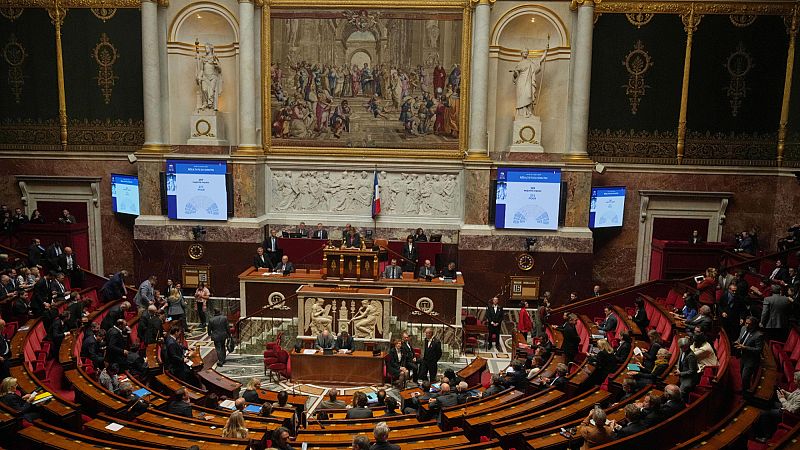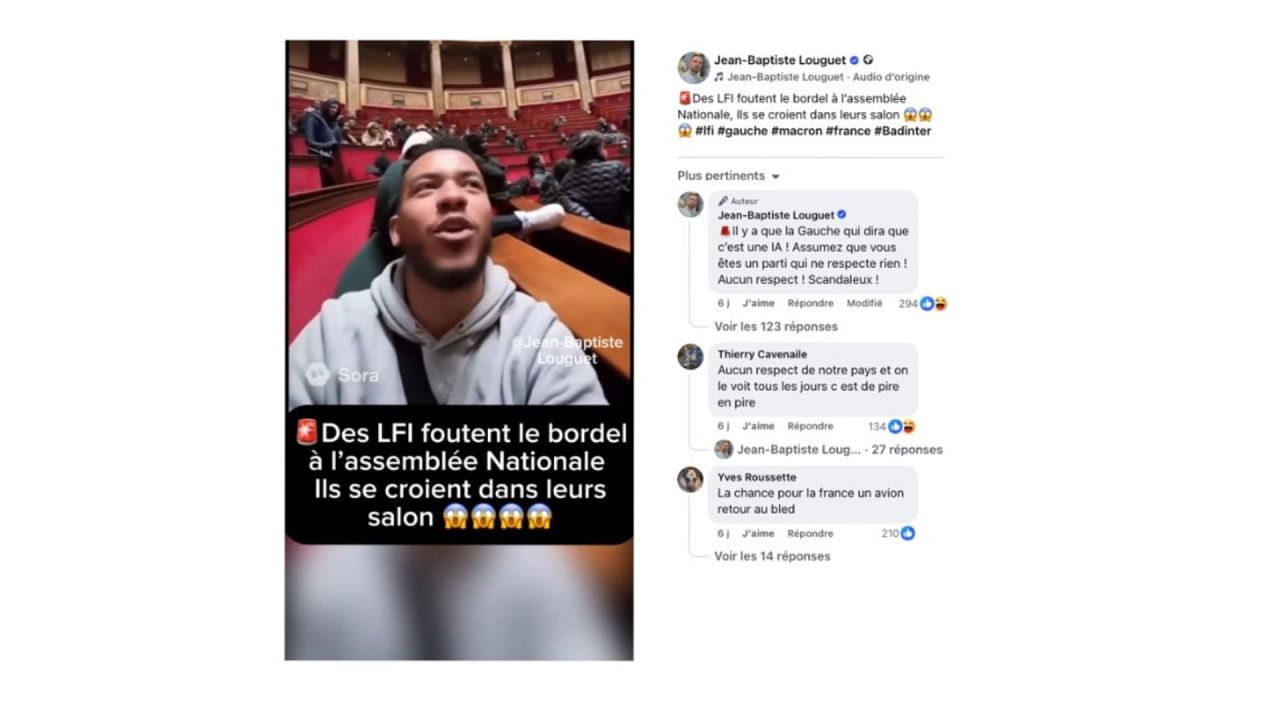Did teenagers wreak havoc in France's National Assembly?

A series of online videos showing a mob of left-wing teenagers wreaking havoc inside France's National Assembly has emerged online, sparking a debate about the conduct of the group of young adults.
In the clips, a group of black teenagers wearing tracksuits can be seen running around the National Assembly — the lower house of France's Parliament — and lighting cigarettes.
One social media user, Jean-Baptiste Louguet — who posts content critical of the French left and appears to support the far-right National Rally party — amassed more than 275,000 views by resharing one of these clips on his Facebook, claiming it showed members of the far-left French Unbowed party "causing chaos in the National Assembly".
In the comments section, Louguet — who did not respond to The Cube's request for comment — stated that "only the left" would claim this video could be AI-generated.
While this content could be seen as humorous, it has also been used to peddle a narrative with racist undertones, depicting young black men as poorly behaved and breaking the rules of the National Assembly.
In reality, the videos are all AI-generated and bear the "Sora" watermark.
By conducting a reverse image search of the video shared by Louguet, The Cube found a number of clips depicting teenagers at the National Assembly, with the tag "AI" and "AI humour" in the caption.
Euronews was able to identify the original clip posted by an account called Humour IA — "IA" is the French acronym for artificial intelligence — which posts a range of AI-generated content.
In October, the Sora 2 technology — created by OpenAI, the same company that founded Chat GPT — was launched in Canada and the US, but is not officially available in Europe.
Its technology allows users to generate 10-second-long hyper-realistic videos from text prompts.
However, the technology's launch has not been without its controversies.
Although OpenAI stated that it had taken the necessary measures to "block depictions of public figures" with Sora, this exemption has not been applied to deceased public figures, who for obvious reasons, cannot provide consent.
As such, following Sora's launch, an influx of videos of dead celebrities emerged on social media, which can become a personal issue for the families of the deceased.
In early October, Zelda Williams, the daughter of the late actor Robin Williams, took to social media, addressing the public in a now-deleted Instagram story.
"Please, just stop sending me AI videos of Dad," Williams said. "Stop believing I wanna see it or that I'll understand, I don't and I won't."
Questioned on whether depictions of deceased celebrities amount to a violation of OpenAI's pledge, the company told PC Magazine, "We don’t have a comment to add, but we do allow the generation of historical figures."
Are teenagers allowed in France's National Assembly?
Even though the contents of the National Assembly video are clearly false because it was generated by AI, it's unlikely that a scenario like the one depicted in the clip would ever occur in real life anyway.
The public can visit the French parliament, either individually, guided or as part of a group, but they are bound by a basic code of conduct.
According to the National Assembly's website, visits have to be reserved in advance, with guests required to provide their name and date and place of birth. Those over 14 are also asked to present ID to be allowed to enter.
Although school visits are authorised, an appropriate outfit is required to be allowed entry onto the premises. Failing that, visitors can be refused entry — yet another clue that the clips are fake, in light of the teenagers' attire.
Today


